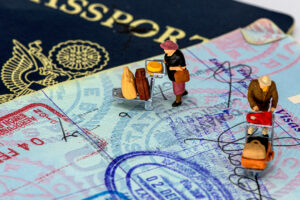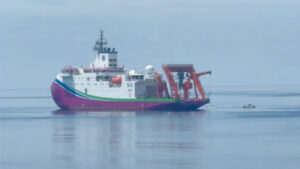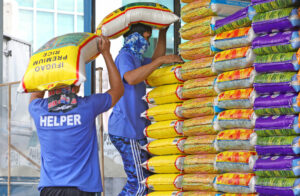Digital nomad visas could spur growth in Philippine startups

By Beatriz Marie D. Cruz, Reporter
THE issuance of digital nomad visas is expected to bolster Philippine startup growth by spurring innovation and enriching the local talent pool, according to local venture capitalists.
“The digital nomad visa is a welcome step to enhancing our local startup talent pool by helping to attract new remote workers who can potentially bring global perspectives, skills and networks to the Philippines,” Paulo Campos III, founding managing general partner at Kaya Founders, said in a Viber message.
President Ferdinand R. Marcos, Jr. has approved the issuance of digital nomad visas to foreigners seeking temporary residence in the Philippines for remote work.
Under Executive Order No. 86 signed on April 24, digital nomads — people who work remotely from several locations — may enter and stay in the Philippines for as long as a year.
Issuing digital nomad visas can plug existing talent and innovation gaps in the startup ecosystem, according to the National Development Co. (NDC), the investment arm of the Department of Trade and Industry.
“Digital nomad visas can help bring in self-employed individuals from outside of the country who may have distinct skills and specializations that can provide support to developments and knowledge transfers to startup companies,” Alewijn Aidan K. Ong, assistant general manager for business development at NDC, said in a Viber message.
Local startups may get the opportunity to upgrade their capabilities through community collaborations or knowledge-sharing with digital nomad talents, said Bit Santos, who serves as the partner for portfolio operations at Kickstart Ventures.
“The introduction of the digital nomad visa in the Philippines brings in a wealth of diverse backgrounds and professional experiences that can enrich and inspire local founders and tech professionals,” he said in an e-mail.
“The hope is that the process for digital nomads interested to come and work here is made simple and efficient to make the Philippines an even more desirable destination than it already is, especially as more and more countries are establishing similar initiatives,” he added.
But Mr. Campos said the one-year time frame for digital nomads might be too short compared with the multi-year stays given to visa holders in other Southeast Asian markets.
To increase the Philippines’ attractiveness to digital nomads, Mr. Santos cited the need to bolster investments in high-speed connectivity, as well as affordable and flexible housing.
The country should also improve infrastructure especially its inter- and intra-city transportation to better support the startup community’s digital nomads and domestic talent, Mr. Campos said.
“Similarly, building a thriving ecosystem of workshops, innovation hubs, startup events and community meetups can help digital nomads connect with local entrepreneurs, talent and capital allocators, helping to open the doors for collaboration, investment and other new opportunities,” he added.
Rene D. Cuartero, co-founder and chief executive officer at AHG Lab, said the government should ensure clarity in tax and registration policies, as well as in regulations on how digital nomads can collaborate with local teams.
He also cited infrastructure challenges in key locations like Dumaguete, La Union, Palawan and Siargao. These areas struggle with sufficient internet access, work-friendly cafés and co-working spaces, he pointed out.
“These areas would benefit greatly from more investment and support especially if we want to spread the benefits of this visa beyond urban centers,” he said in a LinkedIn message.
The Philippine startup ecosystem raised $1.12 billion in 2024, 16% higher than a year earlier, according to Boston Consulting Group and venture capital fund Foxmont Capital Partners.




